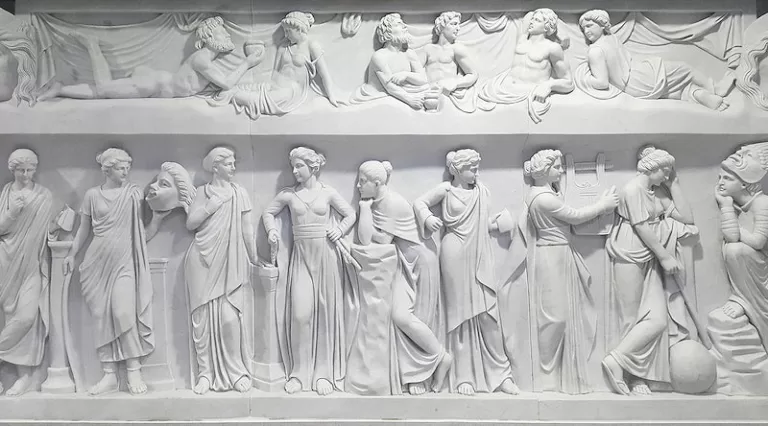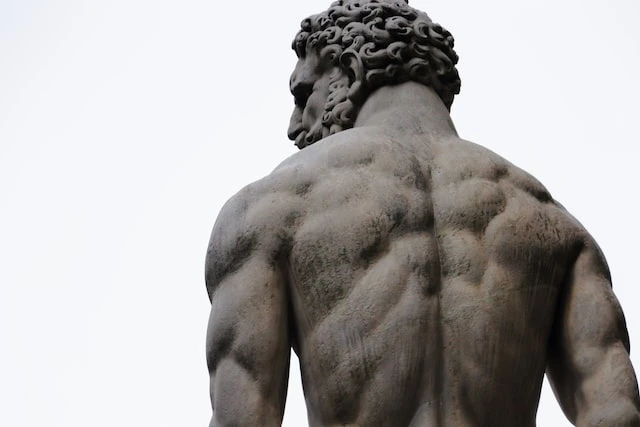The God Marduk: Babylonian God of Creation, War, and Liberation

Marduk was one of the most important deities in the ancient Babylonian pantheon. He played a central role in the religious and cultural life of the city of Babylon. As the god of creation, he was considered the supreme deity, and his cult was the most powerful in the region. The God Marduk was believed to have created everything in the world, including human beings. He was revered for his wisdom, power, and authority.
In Babylonian mythology, God Marduk was said to have defeated the chaotic forces of Tiamat. He established order and harmony in the universe. He was also known for his fierce battles with other gods. His victories were celebrated with great fanfare and elaborate rituals.
The worship of Marduk was central to Babylonian religion and played an essential role in the city’s political and social life. The Babylonian king was seen as Marduk’s earthly representative, and the king’s role in the cult was essential to his legitimacy. The temple of Marduk is known as the Esagila. It was Babylon’s most important religious site and attracted pilgrims across the ancient Near East. As in the Babylonian pantheon, the god Marduk was known as the King of Gods and reportedly freed the Jews. Similarly, in Egyptian and Greek mythology, check out our Fascinating articles:
- The Role of Anubis, The Egyptian God of the Underworld.
- Prometheus: The God of Fire and the Creator of Mankind in Greek Mythology
In this article, we are explaining the god of Babylon and all his mythological history.
The Origins of the God Marduk:
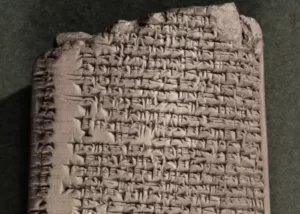
Marduk was the god of Babylon, revered as the supreme deity in the Babylonian pantheon. However, his origins are shrouded in mystery and debate. Some scholars believe that Marduk emerged from a merger of earlier Babylonian gods. In contrast, others suggest he was created as a unifying figurehead for the city-state.
Regardless of his origins, Marduk quickly rose to prominence and became the most important god in Babylonian religion. He was believed to have created the world and was associated with Jupiter. Marduk was also known for his battles with other gods. His victories were celebrated with elaborate rituals.
The worship of Marduk was central to Babylonian culture. His cult was crucial to the city-state’s political and social life. The Babylonian king was seen as Marduk’s earthly representative, and his role in the cult was essential to his legitimacy.
Marduk’s rise to prominence and influence is a fascinating aspect of Babylonian history and mythology. As babylon god marduk’s legacy continues to captivate historians and enthusiasts alike.
The Rise of Marduk:
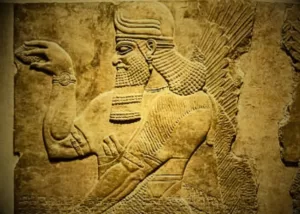
Marduk’s rise to prominence in Babylonian religion was a gradual process that took place over several centuries. As the city of Babylon grew in power and influence, so too did the cult of Marduk.
At first, Marduk was a minor deity associated with the city of Babylon. However, as the city-state began to expand its influence and control over neighboring territories, the cult of Marduk also grew in power and influence. The Babylonian kings saw Marduk as their protector and patron deity, and the king’s role in the cult was crucial to his legitimacy.
Over time, Marduk’s mythology and cult became increasingly elaborate and complex. He was associated with a wide range of attributes, including wisdom, justice, and warfare. The Babylonians believed that Marduk had defeated the chaos dragon Tiamat and created the world from her body.
Marduk’s cult also played an important role in the political and social life of Babylon. The city’s major religious festivals were centered around Marduk’s cult. The king was required to participate in these rituals as part of his duties. The priesthood of Marduk held significant power and influence. They were involved in many aspects of Babylonian life, including education, medicine, and astronomy.
One of the most important monuments in Babylon was the temple of Marduk, known as the Esagila. This temple was the center of Marduk’s cult and was one of the largest and most impressive structures in the city. The Esagila was also home to a massive ziggurat, a towering stepped pyramid that was believed to symbolize the connection between heaven and earth.
Marduk and the Babylonian Creation Myth
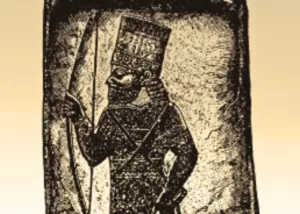
One of the Babylonian mythology’s most compelling and elaborate stories is the epic tale of creation, Enuma Elish. This myth describes the origins of the world and the struggles between the gods, including Marduk.
According to the myth, the universe was a formless, chaotic void in the beginning. The goddess Tiamat, representing the primordial sea, and her consort Apsu, the god of fresh water, produced a generation of gods living in the sea’s depths.
As these gods grew in power, they became increasingly noisy and disruptive. They disturbed the peaceful existence of Apsu and Tiamat. In response, Apsu planned to destroy them all, but his son, Ea, thwarted them. Ea killed Apsu and imprisoned Tiamat, but her rage was such that she swore revenge against the other gods.
The gods needed a champion to match her power to defeat Tiamat. Marduk stepped forward and offered to take on the challenge, but only if he was made king of the gods. The other gods agreed, and Marduk set about creating a series of weapons and monsters to aid him in his battle with Tiamat.
In the epic battle that followed, Marduk was able to slay Tiamat and establish his supremacy over the other gods. Marduk created the world from Tiamat’s body to commemorate his victory, with humans created to serve the gods.
The story of Enuma Elish is a testament to the power and importance of Marduk in Babylonian mythology. As the champion who defeated the primordial chaos, Marduk was seen as a symbol of order and stability. His role as the world’s creator and patron of humanity further cemented his position as the most crucial god in Babylonian religion.
Marduk and the Jews in Babylon:
The Babylonian captivity of the Jewish people was a significant historical event. In 586 BCE, the Babylonian king Nebuchadnezzar II conquered Jerusalem. He exiled many of the Jews to Babylon. During their time in Babylon, the Jewish people faced many challenges, including adapting to a new culture and religion.
Interestingly, Marduk, the God of Babylon, was seen by some Jews as a potential liberator. This may seem surprising given that Marduk was a central figure in Babylonian religion and mythology. There are some indications that the Jewish people saw Marduk positively.
For example, the book of Daniel in the Hebrew Bible portrays Nebuchadnezzar II as a powerful king who acknowledges the greatness of God. In one famous passage, Nebuchadnezzar has a dream he cannot interpret. The Jewish captive, Daniel, who serves as an advisor to the king, can solve the imagination and reveals that it is a warning from God.
The dream is seen as a sign of the power of the Jewish God. It is also noteworthy that the dream features images reminiscent of Babylonian mythology, including a tree that symbolizes the greatness of a king.
Some scholars have suggested this may be a deliberate attempt to link Jewish beliefs with the Babylonian religion. To means that Marduk, as the king of the gods, could be seen as a benevolent figure who might assist the Jews in their captivity.
While it is unclear whether the Jewish people in Babylon worshiped Marduk, it is clear that his mythology had a significant impact on the culture of the region.
Overall, the story is fascinating and complex, with many interpretations and implications.

